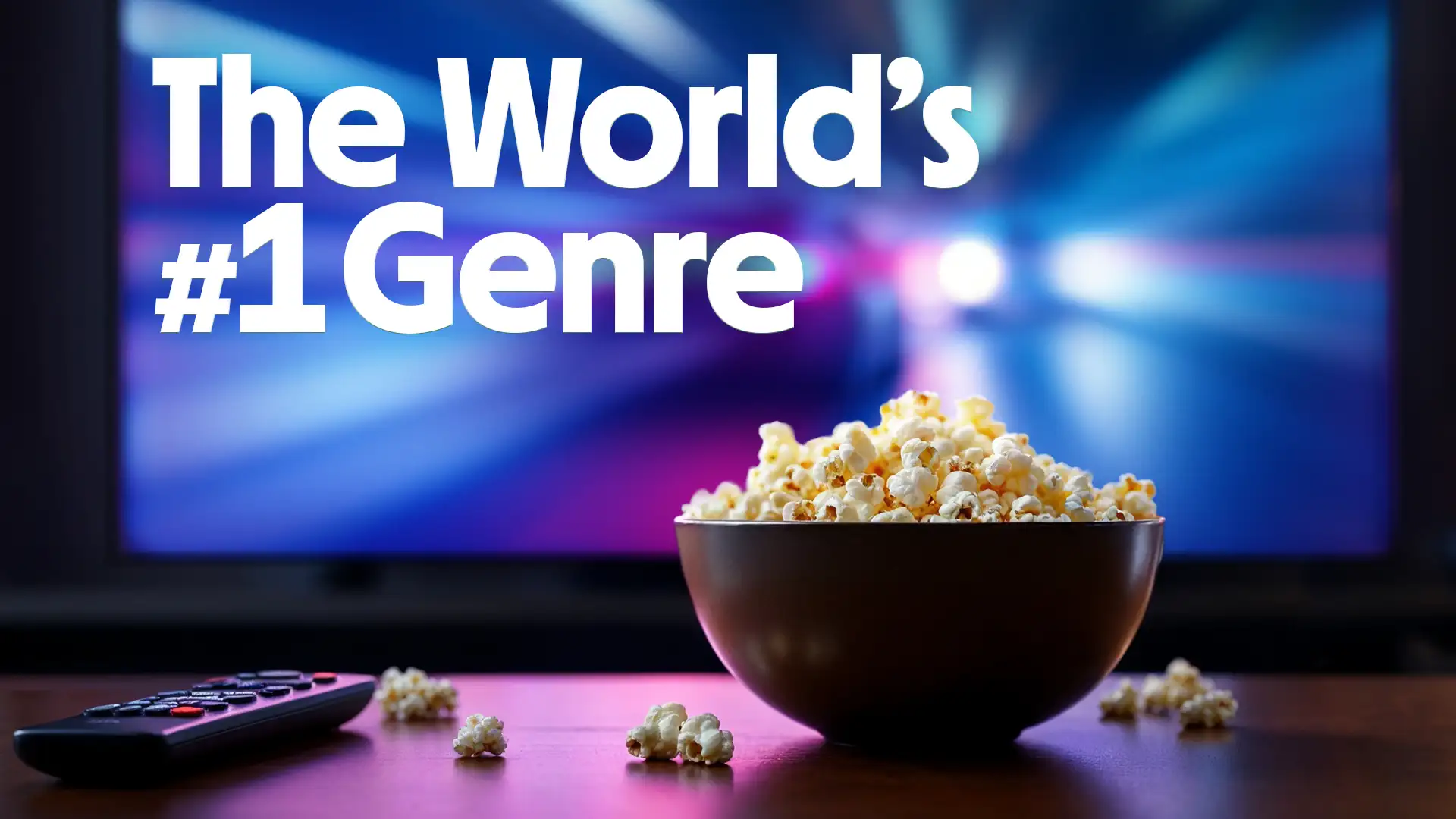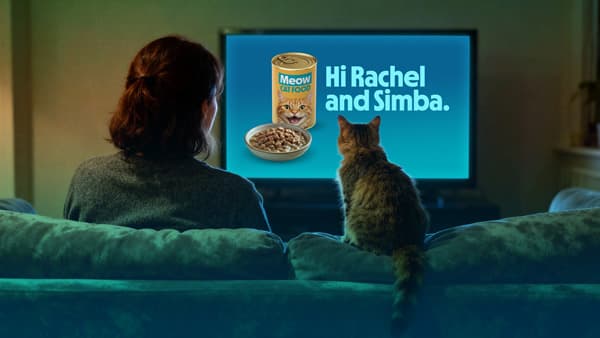Reality TV: Junk Food or Cultural Mainstay?

When it comes to television, there are few genres more polarising - and more secretly beloved -than reality TV.

Reality TV: Junk Food or Cultural Mainstay?
When it comes to television, there are few genres more polarising - and more secretly beloved -than reality TV. Like the guilty pleasure of late-night fast food, it’s the screen equivalent of junk food: you might not proudly admit to watching it, but chances are you’ve binged at least one season of Love Island, MasterChef, or Survivor.
Headlines have done little to help the genre’s reputation. Critics label it ‘toxic’ or ‘harmful’. Articles regularly describe it as ‘not quality entertainment’ or warn of its damaging influence on audiences. With splashy click-bait titles like Is Reality TV Harmful?, Reality TV Is Not Quality Entertainment, and TV Shows to Watch If Toxic Reality TV Isn’t for You, it’s no wonder reality has become a cultural punching bag.
“Like junk food, you might not admit to consuming it -but reality TV is one of the world’s biggest guilty pleasures.”
But if reality TV is so bad for us, why do millions of us keep tuning in? The truth is that dismissing the entire genre as ‘trash TV’ ignores its surprising richness and variety. What we call ‘reality’ today is vastly broader, more diverse, and far more culturally significant than the handful of dating shows that tend to dominate the headlines.
What Do We Mean by ‘Reality’?
Ask most people what comes to mind when you say ‘reality TV’, and they’ll picture glossy dating shows like Love Island, Married at First Sight, or Too Hot to Handle. These formats deliver the scandals, memes, and tabloid headlines that dominate social media - so it’s natural that they shape public perception.
But in industry terms, the category is much larger. Increasingly, the label ‘reality TV’ is giving way to something more dignified: Unscripted Entertainment or, as some international distributors now call it, Factainment. These terms reflect the vast range of shows that sit under the banner - from cooking competitions to documentary-style storytelling - that bear little resemblance to each other beyond being unscripted.
The Breadth of Unscripted Entertainment
Look beyond the dating dramas, and you find an extraordinary variety of formats that audiences around the world return to season after season:
- Cooking Competitions - The Great British Bake Off, MasterChef and their many spin-offs.
- Talent Shows - The Voice, Got Talent, The Masked Singer.
- Survival and Travel - Survivor (now heading into its 49th season), The Amazing Race.
- Observational Documentary - Bondi Rescue, Border Patrol, Police Ten 7.
- Challenge Shows - Wipeout, Gladiators, Lego Masters.
- Lifestyle and Design - Grand Designs, The Block, Queer Eye.
- Relationship and Dating - Love Island, Married at First Sight, and more.
What’s striking is that most of this content is not scandalous at all. Many shows deliver feel-good family viewing: The Dog House, a series matching rescue dogs with new owners, has become a multi-season hit. The Restaurant That Makes Mistakes follows people with dementia running a restaurant, blending empathy with entertainment.
“Unscripted is far more than glossy dating shows - it’s cooking, culture, creativity, and comfort.”
Why It Matters
So why defend unscripted entertainment? Because it matters - commercially, culturally, and socially.
- Ratings Power - Unscripted reliably anchors primetime, often outperforming scripted drama. In fact, unscripted is now the number one genre worldwide – ahead of news and drama.
- Accessibility - Cheaper to produce than high-end scripted content but delivers strong engagement and global adaptability.
- Shared Culture - Still produces genuine watercooler moments in a fragmented streaming age.
- Economic Impact - Global format sales (MasterChef, Got Talent) make unscripted some of the most lucrative IP in television.
“Unscripted is now the world’s #1 genre - ahead of both news and drama.”
The Achilles Heel
Of course, reality TV has earned some of its bad reputation. Critics point to:
- Manufactured Drama - Editing engineered to maximise conflict.
- Stereotyping & Exploitation - Contestants boxed into villain/hero roles.
- Mental Health Concerns - Media reports question the toll on participants.
- Authenticity - Marketed as ‘real’, but often carefully constructed.
These criticisms fuel ongoing debate about whether the genre does more harm than good.
Unscripted’s Staying Power
Yet despite these criticisms, the genre not only survives - it thrives. Survivor is still pulling global audiences nearly 25 years in. Cooking competitions continue to create celebrity chefs. Talent shows have launched stars from Adam Lambert to Kelly Clarkson.
Streaming has supercharged the trend. Netflix pours investment into dating shows (Love Is Blind), competitions (Is It Cake?), and docu-series (Cheer). Amazon backs celebrity factual entertainment. The platforms know what broadcasters have long known: unscripted is scalable and sticky.
“Even in the streaming age, unscripted hasn’t just survived - it has thrived.”
Beyond Trash vs Treasure
The temptation is to file reality TV into binary boxes: guilty pleasure or cultural rot, wholesome or exploitative, vital or disposable. The truth is more complicated.
To dismiss it wholesale is like saying all food is bad because you once ate a greasy burger. Yes, there’s plenty of empty-calorie reality - but there’s also nourishment: storytelling that entertains, inspires, and sometimes even educates.
Conclusion: A Genre Worth Taking Seriously
Reality TV has always been a lightning rod for cultural anxiety. It blurs the lines between authenticity and artifice, entertainment and exploitation, ordinary life and extraordinary spectacle. That’s part of why it’s endured.
So the next time someone dismisses reality TV as ‘trash’, remember the bigger picture: unscripted entertainment isn’t fringe filler - it’s the world’s #1 genre and a core driver of television’s global economy.
“Reality TV isn’t filler - it’s one of television’s most enduring and adaptable forms.”
Sources
- Radio New Zealand. Is reality TV harmful? (2025) RNZ
- The Signal, Georgia State University. Reality TV is not quality entertainment (2023) Georgia State Signal
- NZ Herald. TV shows to watch if toxic reality TV isn’t for you (2025) NZ Herald
- Newsroom. Reality TV’s Achilles heel (2025) Newsroom




